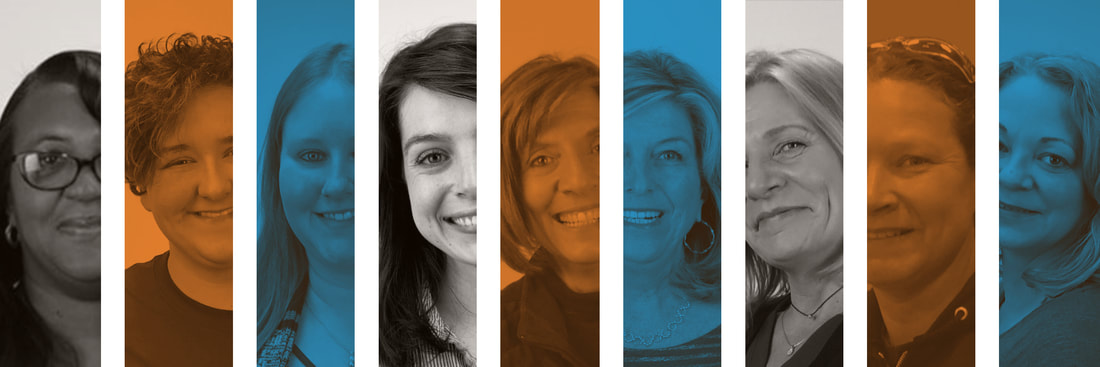The stories of people's careers inspire all of us to grow.
These women share their background, the work they do in a variety of fields within the manufacturing industry and explore how they operate and thrive in our workplace.
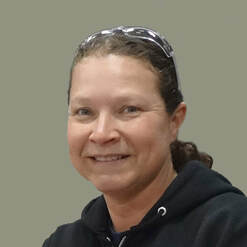
Lisa Williams
Machinist
Tell us a little about your job and what your work day looks like.
My day starts at 5am, I like to start early so I can get out early. I am a Machinist/CNC Programmer. I am responsible for producing machined parts by programming, setting up, and operating CNC machines; maintaining quality and safety standards; keeping records; and maintaining equipment and supplies.
How did you arrive at your current position?
I worked in the automotive seating industry for 22 years. When the industry started to slow down on production, model year changes, and outsourcing overseas, I knew it was time for a career change. So, here I am.
What attracted you to a career in manufacturing?
I am one of those who grew up with a family member who worked and retired from the automotive manufacturing industry. My parents mentored and shared industrial trade experience with me to help educate me in the field. Both have taught me that hard work, dedication, and perseverance not only merits you a paycheck, but it also earns you the respect and integrity of your peers.
Have you ever encountered stereotypes (like manufacturing workplaces are dirty and dangerous, or the fields and skills required are a better fit for men) in your education or career? How did you overcome them?
Of course, some types of manufacturing are cleaner than others. I would definitely say that it would take a woman who didn’t mind rolling her sleeves up and getting dirty all the time to do what I do. It’s not a clean job by far, and not every woman can deal with the reality. My outlook is that it washes away at the end of the day.
Research shows that women, especially women in STEM (science, technology, engineering, mathematics) fields, do better if they have a mentor. Has mentorship played a role in your career? Is there anything AHI could do to better promote mentoring?
If a job is outlined correctly beforehand to make women aware of all it entails and she is taken under the wings of an individual that is prepared to teach her, no doubt she will succeed. Gaining the trust and respect from colleagues is a big step to achieving positive results.
What do you think can be done to spread the word to women about career options in modern manufacturing?
Internal culture is a key factor. If a company doesn’t have a desirable culture it will fail to retain female employees. Offer women equal pay, a clear path for advancement, work-lift balance options, a safe work environment, and working relationships between genders. Erasing the outdated notion of “man’s job” would appeal to more women candidates.
Would you recommend a career in manufacturing? Why or why not?
I do believe that any woman can be anything they want to be. Having the right attitude is everything! Also, to never take no for an answer. You choose a profession which you feel comfortable doing on a daily basis.

Lisa Whiteside
Electrical Assemble
Tell us a little about your job and what your work day looks like.
In my day to day I’m responsible for fabricating and wiring specialized panels for our clients.
How did you arrive at your current position?
I was informed of the position by my former classmate and current coworker. It was their personal recommendation that lead me to AHI.
What attracted you to a career in manufacturing?
In college my main academic focus was in construction management and renewable energy. It was through my teachers and parent’s guidance that lead to a different opportunity in electronics and a fond love of the challenges that electronics give.
Have you ever encountered stereotypes (like manufacturing workplaces are dirty and dangerous, or the fields and skills required are a better fit for men) in your education or career? How did you overcome them?
I have been lucky in the fact that I have gone through life without encountering or being able to ignore many of the stereotypes that women sometimes find in a manufacturing field. If a situation did happen, then I would deal with it in the manner that seems best.
Research shows that women, especially women in STEM (science, technology, engineering, mathematics) fields, do better if they have a mentor. Has mentorship played a role in your career? Is there anything AHI could do to better promote mentoring?
I believe that STEM jobs have a higher demand for mentorship/apprenticeship across the field, regardless of gender. They require a larger learning curve, meaning training with someone of experience is key to your personal success in the field. I know mentorship has played a big role in both my education and career, I’ve had amazing experiences here at AHI and my fellow coworkers have always been incredibly helpful. I can’t think of anyway to improve the mentorship aspect of AHI that they’re not already doing.
What do you think can be done to spread the word to women about career options in modern manufacturing?
Reach out to high schools/middle schools. The younger generation is simply unaware of the trade school option when it comes to education/careers after high school.
Would you recommend a career in manufacturing? Why or why not?
Yes, I would recommend a career in manufacturing. The cost of school is low, with an honest wage in return and job availability is high. We work long hours, sometimes drive and handle heavy machinery and dangerously heavy loads, but you often feel like you’re actually building something, because you can see and feel what you build. It isn’t for everyone, but it can be a lot of fun.

Rebecca Molyet
Mechanical Engineer
Tell us a little about your job and what your work day looks like.
I am one of the mechanical engineers here at AHI. My workday varies between updating 3D models, detailing mechanical drawings, checking over maintenance manuals that our ME Co-Ops create, updating the schedule I make for our manuals to be sent, and helping our co-ops when they encounter issues with their work.
How did you arrive at your current position?
I worked hard and received my bachelor’s degree in Mechanical Engineering Technology from the University of Toledo, found out AHI was hiring from a career fair UT had, applied for a mechanical engineering position here at AHI and was lucky enough to be chosen for the position. I’ve been at AHI for a year and a half now.
What attracted you to a career in manufacturing?
In the degree I chose, manufacturing is a large part of the engineering field. It wasn’t so much as I chose manufacturing, but manufacturing chose me. My immediate family are all engineers so once I tried the path of mechanical engineering in college, I never felt the need to turn back.
Have you ever encountered stereotypes (like manufacturing workplaces are dirty and dangerous, or the fields and skills required are a better fit for men) in your education or career? How did you overcome them?
I believe everyone has their own opinions about a manufacturing workplace, including myself. Some may think that it’s dirty and dangerous but I feel that with following the safety rules and washing your hands, manufacturing can be a safe and clean place to work. I’ve never been told manufacturing isn’t a place for a woman but maybe that’s just because I have a wonderful, supportive family and great co-workers.
Research shows that women, especially women in STEM (science, technology, engineering, mathematics) fields, do better if they have a mentor. Has mentorship played a role in your career? Is there anything AHI could do to better promote mentoring?
Yes, I would consider all of my teachers I had in high school and college mentors, they all helped me along the way to where I am now. I would also include the whole mechanical engineering department and others at AHI who have helped me along the way to learn what I know today. I think AHI has done a great job promoting mentoring.
What do you think can be done to spread the word to women about career options in modern manufacturing?
I think it would be beneficial for colleges to show young adults in high school that women are accepted in the manufacturing industry and to not be afraid of pursuing a career in manufacturing if that’s what they’d like to do.
Would you recommend a career in manufacturing? Why or why not?
I think everyone should pursue a career they enjoy, if your career leads you to the manufacturing industry, don’t be afraid to take it. Manufacturing can be a great place to work in my experience.
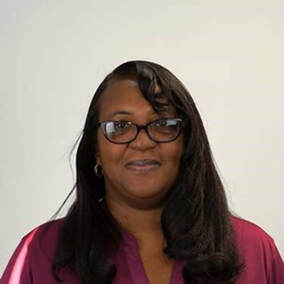
Shona Scott
Accounting
Tell us a little about your job and what your work day looks like.
I am in the office environment of the company. My main focus is the financial aspects of the company which include accounts payable, accounts receivable, banking and administrative duties.
How did you arrive at your current position?
I started at AHI 23 years ago as an administrative assistant when manufacturing was located at 720 Lavoy Road. When we moved to this building I started doing accounting and assisting with payroll and with some HR duties as well.
What attracted you to a career in manufacturing?
Both of my parents worked 30 years plus and retired from manufacturing jobs. My mother was a press operator at Toledo Technologies which manufactures brake shoes for Chrysler vehicles and my father worked for General Motors at the Power Train plant manufacturing transmissions. Both of them were very hard workers and earned a good living being able to take care of themselves and provide for their 5 children.
Have you ever encountered stereotypes (like manufacturing workplaces are dirty and dangerous, or the fields and skills required are a better fit for men) in your education or career? How did you overcome them?
I have not encountered stereotypes in my studies, I studied Office/Business Management and accounting. In my early days here at AHI there were very few women engineers and no women worked in the shop area. But, now we have some and I think it is great. I know my mom did encounter some stereotypes, but she was committed, confident, and did her job very well.
Research shows that women, especially women in STEM (science, technology, engineering, mathematics) fields, do better if they have a mentor. Has mentorship played a role in your career? Is there anything AHI could do to better promote mentoring?
Unfortunately mentorship did not play a role here at AHI for myself, although I have worked very well with 2 direct supervisors that I have learned a lot from. The skills and knowledge that I gained from them I believe is what has kept me here today.
What do you think can be done to spread the word to women about career options in modern manufacturing?
Maybe through social media which seems to be the way most information is getting to people these days. Maybe have an open house and invite women and young girls to come and see what goes on here.
Would you recommend a career in manufacturing? Why or why not?
Yes, I would. It’s a great industry to be a part of if it is truly what you want to do.
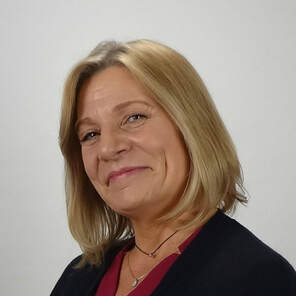
Renee Mossing
Supply Chain ManagerTell us a little about your job and what your work day looks like.
Supply Chain is a very demanding, and at times a very frustrating career. It is very difficult to plan your day and have it fall in to place, however at the end of the day once you realize your accomplishments the feelings of triumph can easily outweigh those frustrations. In a nut shell Supply Chain encompasses sourcing materials, negotiating costs and purchasing those materials, production scheduling, job order processing, inventory management and inbound/outbound transportation, all with your eye on cost, quality, and service and not necessarily in that order.
How did you arrive at your current position?
I stumbled in to the Supply Chain field, I did not realize I was on a career path until I was. I began my career in quality and logistics in the Automotive industry. After taking a position as a Receptionist in a Manufacturing facility, the owner recognized my ambition to learn and promoted me to Customer Service, which eventually lead to Manager of Inside & Outside Sales as well as Purchasing. All while still being very much involved in the Quality and Transportation aspects of the business. Once I came to realize I was in the very demanding and rewarding field of Supply Chain, there was no turning back.
What attracted you to a career in manufacturing?
My career choices and ambition led me to manufacturing.
Have you ever encountered stereotypes (like manufacturing workplaces are dirty and dangerous, or the fields and skills required are a better fit for men) in your education or career? How did you overcome them?
Being a female Supply Chain manager in predominately male workplaces has presented many challenges, however growing up in a family with only brothers prepared me for hard work and perseverance. Whatever they could do, I would work twice as hard to learn and master. Those work ethics have served me well in overcoming any stereotypical interference.
Research shows that women, especially women in STEM (science, technology, engineering, mathematics) fields, do better if they have a mentor. Has mentorship played a role in your career? Is there anything AHI could do to better promote mentoring?
I had, and still have, the most amazing mentor and friend in Peter L. Davis, co-owner of Dundee Manufacturing. This man taught me all of the skills it takes to succeed in Supply Chain, as well as business in general. He recognized in me the tenacity and desire to succeed, no matter the goal. With an abundance of patience for me in the Five Why’s (that I can easily turn into Ten Why’s), he single-handedly put me on this path to success. Not only is mentorship a skill, it is a heart-felt feeling of wanting to help others succeed. In my experience mentors come in all fashions, and as long as we have the want to learn those mentors are in abundance.

Kelsey Davis
HR & Safety Compliance
Tell us a little about your job and what your work day looks like.
I work within the Human Resource department wearing a variety of hats. My main focus presently has been the development of a comprehensive and compliant safety program within AHI. My days vary, but often I’ll end up managing our various contractor management accounts, updating insurance requests/requirements, working with new and current employees on a variety of safety training (internal and external), communicating with shop managers and team leaders regarding safety incidents, investigations, and procedures, and anything else that may be requested of me from a safety perspective.
How did you arrive at your current position?
I began at AHI in 2012 as an administrative intern. From there I was hired as a multimedia designer/manuals coordinator in 2014. Realizing that I wanted a change from what I was doing, but wanted to stay with the company, I was able to transition my skills into a position with our Human Resource department. I saw an opportunity to grow and expand AHI’s safety program, so I, with my manager’s support, began to immerse myself in industrial safety.
What attracted you to a career in manufacturing?
In all honesty I started out simply needing an internship credit to graduate college and I just happened to secure one with a manufacturing company. I didn’t seek this industry out, but after being exposed to what a modern manufacturing company can do and how a modern manufacturing facility operates I realized I wanted to stay.
My dive into industrial safety really enhanced my desire to stay within manufacturing. The work of engineers, manufacturers, and assemblers is a unique blend of mathematics and artistry, and seeing it come together from beginning to end is really cool. And seeing it all come together in a safe way is even cooler.
Have you ever encountered stereotypes (like manufacturing workplaces are dirty and dangerous, or the fields and skills required are a better fit for men) in your education or career? How did you overcome them?
There have been a few gender-motivated stereotypes I’ve encountered regarding my intelligence and ability, but none of them have come from my colleagues at AHI.
There has been a transition period where some believed that safety management could not be done from behind a desk, and they weren’t wrong, but for a safety program to be successful it’s about the commitment of an entire team (office and shop) working together with the same end goal in mind.
Research shows that women, especially women in STEM (science, technology, engineering, mathematics) fields, do better if they have a mentor. Has mentorship played a role in your career? Is there anything AHI could do to better promote mentoring?
I definitely have benefited from mentorship in my career at AHI. There have been a group of people who have allowed me to collaborate with them, bounce ideas off of them, and seek feedback from them on a variety of topics.
My manager has played a huge role in where I’m at presently in my career because she has given me the support and guidance to follow my passions, even if those passions are outside of a traditional HR role.
AHI has made mentorship improvements in the past few years and I can only see that expanding in the years to come.
What do you think can be done to spread the word to women about career options in modern manufacturing?
We participate in a national event every year called Manufacturing Day. This event aims at introducing a younger generation in the career opportunities of modern manufacturing, hopefully this and other events will continue to spread the word to younger generations, and young women, about the future of this industry.
Would you recommend a career in manufacturing? Why or why not?
I would highly recommend a career in manufacturing. There are a plethora of fields and careers available within the industry and there is a satisfaction of seeing and being part of a process that designs, creates, and builds items big and small.
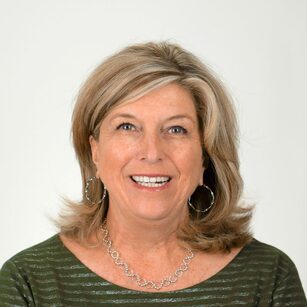
Mary Jo Archer
Engineering Administrative Assistant
Tell us a little about your job and what your work day looks like.
My title is Engineering Administrative Assistant, I service Electrical, Mechanical, Service Engineering, Purchasing and Spare Part Sales. My duties include pulling new part numbers in our ERP. I do all machine releases and revisions (Electrical, Pneumatic and Mechanical) and updating of all bill of materials. I am also our companies Document Controls Coordinator, I manage our FTP site, and post to customer SharePoint/FTP sites when required. I create all as-built and final drawing and PDF files to send out with our machine manuals, checking them against what is in our ERP system to make sure they both match. I enter time slips once a week for all of Engineering and Project Management and maintain our KIP plotter and plot drawings for installs.
How did you arrive at your current position?
I originally was employed with AHI from 1991 until 2001. I then worked in Real Estate. There was a Housing Market Crash in September 2008. After struggling in real estate I decided to go back to manufacturing in October 2011. Best decision I ever made, I love my job.
What attracted you to a career in manufacturing?
I’m very detailed oriented and organized. The position I currently have lets me utilize what I am best at doing.
Have you ever encountered stereotypes (like manufacturing workplaces are dirty and dangerous, or the fields and skills required are a better fit for men) in your education or career? How did you overcome them?
It’s like anything else in life, people have opinions and can be judgmental. I know the truth about the great team I work with. Unique to the manufacturing industry, AHI believes productivity begins with good leaders and behavioral education. We all have been taught about Magis – working together for the greater cause, to work as a team, there is no finger pointing here. I know this is unique, after listening one day to friends both male and female that work in the automotive industry – how they are constantly fighting on the floor with other people in their department and having to go their union steward and file a complaint. It made me really appreciate who I worked for.
Research shows that women, especially women in STEM (science, technology, engineering, mathematics) fields, do better if they have a mentor. Has mentorship played a role in your career? Is there anything AHI could do to better promote mentoring?
When I was asked to come back there wasn’t anyone doing my position. I have a lot of knowledge of the machinery from my past employment here and they thought I was a good candidate to organize the Engineering department and take on other duties that customers were demanding. However, I do believe in strongly in mentoring and do so whenever I can.
What do you think can be done to spread the word to women about career options in modern manufacturing?
I must admit that women are definitely outnumbered in this profession. And not every manufacturing company is operated like Automatic Handling. It is very satisfying to me to see a custom system made from the beginning to end. Everybody has their hands on it at different times but we all work together as a team. They would not have to mind wearing a hard hat and safety glasses, noise and dust but other than that it’s very gratifying work.
Would you recommend a career in manufacturing? Why or why not?
That depends on if the manufacturing company had a union or not. It seems that when a union is involved people feel entitled and there is a lot more finger pointing going on. Would I recommend a job where I work? Absolutely.
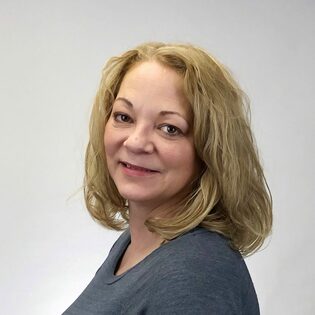
Lisa Barrett
Human Resource Administrator
Tell us a little about your job and what your work day looks like.
I am a representative for Human Resources. My main duties are recruiting, customer relations, and employee relations. I have various other duties as well.
How did you arrive at your current position?
At the time, I was working in Shipping/Receiving. I was asked to come to HR because I work well with our customers and our employees.
What attracted you to a career in manufacturing?
I started in manufacturing when I was 16 years old. After college, I began my administrative career. I have had many learning opportunities at AHI and have enjoyed them all.
Have you ever encountered stereotypes (like manufacturing workplaces are dirty and dangerous, or the fields and skills required are a better fit for men) in your education or career? How did you overcome them?
AHI takes pride in keeping the workplace safe and clean. The women we have on and off the shop floor are true talents.
Research shows that women, especially women in STEM (science, technology, engineering, mathematics) fields, do better if they have a mentor. Has mentorship played a role in your career? Is there anything AHI could do to better promote mentoring?
I have had very good mentors at AHI, both men and women. When I first started at AHI mentoring was not as important as it is now. I’m glad that has changed.
What do you think can be done to spread the word to women about career options in modern manufacturing?
Maybe contacting schools/colleges and inviting female students to visit. Or see if schools are interested in hosting a female only job fair.
Would you recommend a career in manufacturing? Why or why not?
Yes I would. I am proud of how far AHI has advanced. I see great things for AHI.
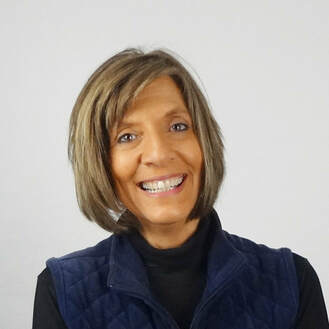
Tammy Rieger
Accounting/Payroll-Benefits
Tell us a little about your job and what your work day looks like.
A little bit about the work I do at AHI include payroll/benefits administration with accounting functions. These functions include working along side with the accounting and human resource department. Position includes processing and managing time keeping records, payroll system for multi-level pay policies, taxes, personnel and payroll data files. Assist with coordinating and implementing benefit plans for the company, manage and maintain record keeping for new enrollments, changes, terminations. Some of the accounting functions include labor reporting for the various work groups, basic financial reporting, project and customer order invoicing.
How did you arrive at your current position?
I was hired in as an accounting assistant for various AHI accounting projects that led to other work opportunities.
What attracted you to a career in manufacturing?
Work opportunities led to jobs in manufacturing. This helped provide a base for continued learning, growing, building of knowledge and skills expanding into various levels and complexities of work in accounting and payroll.
Have you ever encountered stereotypes (like manufacturing workplaces are dirty and dangerous, or the fields and skills required are a better fit for men) in your education or career? How did you overcome them?
I have not encountered stereotypes. Actually the companies I worked for had women in different levels of manufacturing.
Research shows that women, especially women in STEM (science, technology, engineering, mathematics) fields, do better if they have a mentor. Has mentorship played a role in your career? Is there anything AHI could do to better promote mentoring?
Mentoring occurs in many different ways, family, school, or even friends, it all plays a role in an individuals growth. One unique opportunity, I have seen for mentoring, is when you combine education and hands on, such as through co-op program. This seems to have proven to be a good combination for one to stay on track. AHI has done a nice job with working with colleges for co-op, mentoring, opportunities. Have heard many positive things how it has improved applying what a person has learned into application. AHI, I think, has demonstrated the company wants to help people identify the skills they are strong in and allow them the opportunity to further build those skills.
What do you think can be done to spread the word to women about career options in modern manufacturing?
Schools, at different grade levels, can be a good source to start with. Schools have the resources to reach out to businesses, within and outside the community, to create an education and skill set platform that can help women, as well as others, prepare for the skills needed to succeed in today’s economy.
Would you recommend a career in manufacturing? Why or why not?
The manufacturing industry, in today’s economy, is developing the need for a variety skill levels which is allowing for expansion into more complex and challenging roles. This combination seems to be providing a base to grow and expand one’s career opportunities.
Women totaled about 47 percent of the US labor force in 2016, but only 29 percent of the manufacturing workforce. We are proud that Automatic Handling has a diverse workforce that is always seeking talented individuals.

